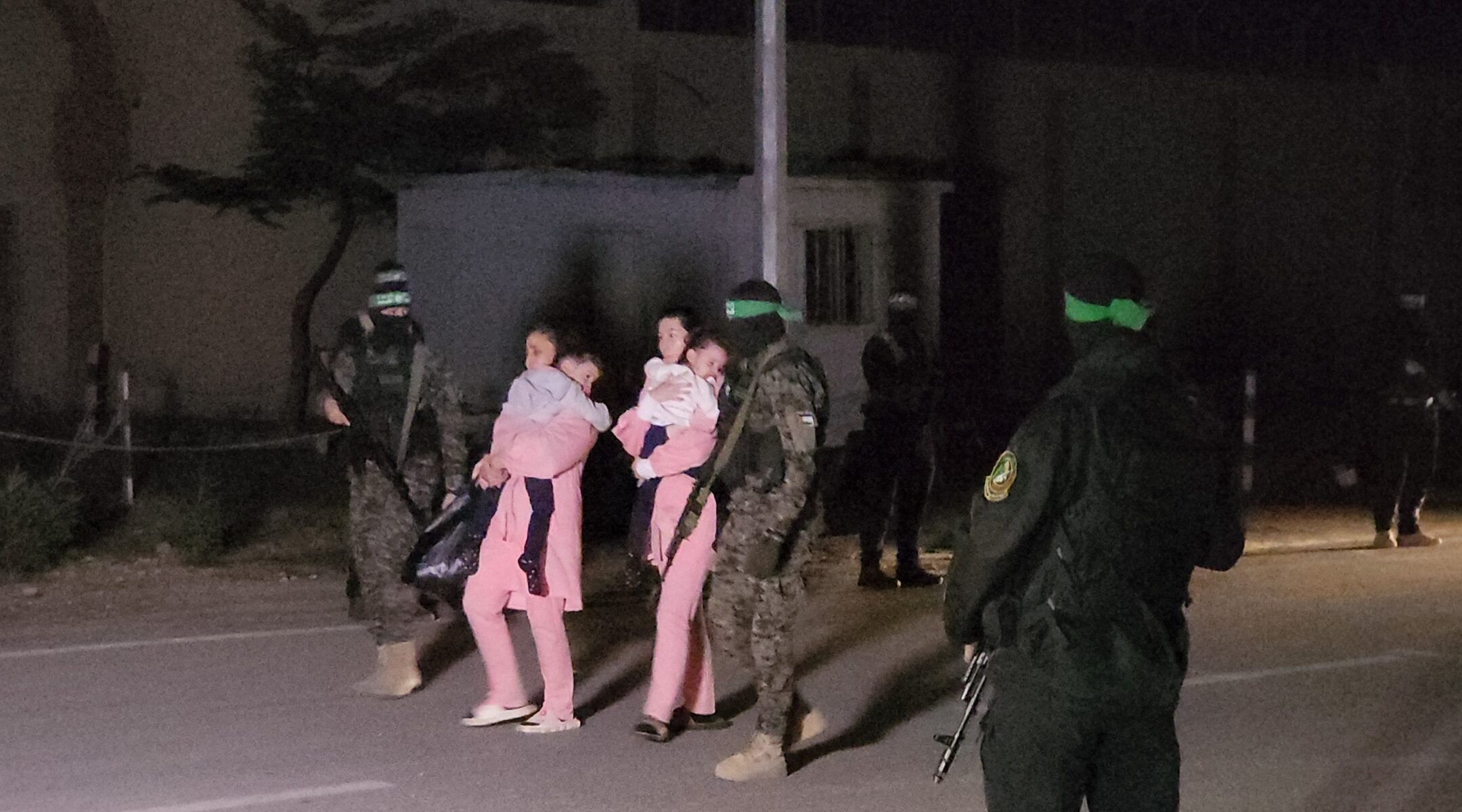If the past year has taught anything, it’s that banking on a hostage deal is a bad idea. But those odds appear to be changing, with Israeli officials reportedly saying on Tuesday that Hamas has accepted a proposed outline for a deal.
There are still details to work out. But the negotiations appear to have gotten further than at any time since November 2023, when Hamas released more than 100 of its captives during a weeklong ceasefire.
Since then, a predictable cycle has taken hold: Israel and Hamas negotiate, with the United States, Qatar and other Arab countries acting as go-betweens. One side or another signals that a deal is nearing. Then the talks hit an impasse, mutual recriminations fly and the fighting continues. Rinse and repeat.
But this week, everyone is indicating that things are changing. For the first time in a while (maybe ever), Israel, Hamas, President Joe Biden’s team and President-elect Donald Trump’s team are all basically signaling the same thing: An agreement to free the hostages could be reached by Jan. 20, when Trump takes office.
“In the war between Israel and Hamas, we’re on the brink of a proposal that I laid out in detail months ago finally coming to fruition,” Biden said in a valedictory foreign policy address on Monday. He said he had spoke with Israeli Prime Minister Benjamin Netanyahu as well as the leader of Qatar. “We’re pressing hard to close this.”
He’s not alone: Jake Sullivan, the outgoing national security adviser, said, “We are close to a deal, and it can get done this week.”
On Monday, Trump said in a Newsmax interview, “I understand there’s been a handshake and they’re getting it finished, and maybe by the end of the week.”
Anticipating a likely positive response from Hamas on Monday, an Israeli official reportedly predicted that “the details can be finalized within days.”
“Within days” or “this week,” of course, would mean that the deal would be inked right around the time of Trump’s inauguration. Trump has repeatedly threatened that there would be “hell to pay” if the hostages — including seven Americans — aren’t freed by then. Now, some of them may be on the way to freedom.
The proposed deal, according to Israeli reports, resembles the one Biden put on the table months ago: Over the course of a 42-day ceasefire, 33 of the 98 remaining Israeli hostages — many of whom are thought to be alive — would go free in exchange for Palestinian security prisoners. Humanitarian aid would flow into Gaza. Subsequent stages of the agreement would see Israel progressively withdraw from the enclave as more hostages and prisoners are released.
At issue in negotiations: How many Israeli hostages are alive? How many Palestinian prisoners, convicted of terrorism, would go free? How much would Israel withdraw from Gaza, and when would that happen?
Those aren’t small questions. But there are signs that this time, they are being worked out. Steve Witkoff, Trump’s incoming Middle East envoy, met with Netanyahu a few days ago, and reportedly said Israel would face “consequences” if a deal wasn’t done.
Details of the deal are leaking, with reports in Israeli media indicating that most but not all of the first hostages to be released are alive and that 50 security prisoners will be released for every female soldier freed from captivity. Male soldiers would not be part of the first release and would be freed subsequently only if Israel withdraws fully from Gaza, according to the reports.
A final round of talks is taking place Tuesday. After that, Israel’s government would need to approve a deal — and then, after more than 15 months in captivity, hostages could begin to be released within days.
Netanyahu is meeting about the deal with his far-right coalition partners, who have adamantly opposed a ceasefire, seemingly in a bid to ensure that his government won’t collapse if he signs the agreement.
Opponents of a ceasefire agreement say it would represent a retreat from the goal of “total victory” and fuel future terrorism with the release of security prisoners. (Some also want to see Jewish resettlement in Gaza.) But the most vocal advocate of that position, the far-right minister Itamar Ben-Gvir, on Tuesday said that he understood that his party alone could no longer obstruct a deal by threatening to collapse the government.
“Over the past year, through our political power, we have managed to prevent this deal from coming to fruition, time after time,” Ben-Gvir tweeted. “However, since then, additional elements have been added to the government, who now support the deal. … The power of Otzma Yehudit is not sufficient in the current composition of the government to constitute a lever of pressure to prevent the deal, and our withdrawal alone will not prevent its implementation.”
But even with hopes rising, some officials aren’t holding their breath. After relaying optimism about a deal, Sullivan said, “If in five days it hasn’t happened, I will be the person who is probably least shocked by that.”
JTA has documented Jewish history in real-time for over a century. Keep our journalism strong by joining us in supporting independent, award-winning reporting.






